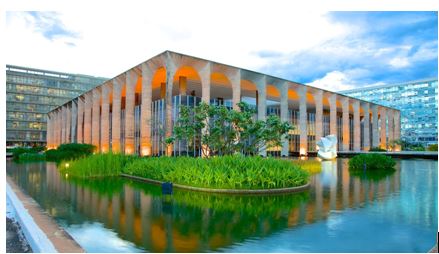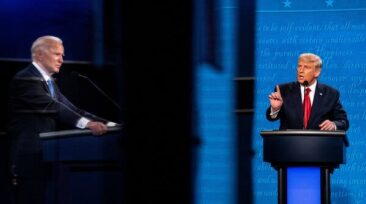The Yellow Vests / Angry nations: What the GEAB announced in June 2016

The nations are angry, as anticipated in the GEAB since late 2011, and this is a logical consequence of a crisis without historical precedent, a multi-directional crisis of global dimensions to which the levels of national “democratic” power are structurally unable to respond while governance structures, which are most likely to put solutions into place, i.e. international and transnational structures, have no political legitimacy, knowing political legitimacy is acquired in only two ways: by force or democratically[1]…
Gradually disconnected national democracies
Today the people’s anger, which is expressed everywhere (psychosocial pathologies revealed by “terrorists” and systematically labelled ISIS, violent and endless manifestations of the far right rise of increasingly violent nature…), is serving agendas of democratic interruptions. Brazil provides the best example of this, where popular protests have led to the establishment of an unelected temporary government, with no sure election in sight (even worse: if the Senate finally decides on Roussef’s impeachment on August 15, the presidential election could come out of universal suffrage and become an election by Congress[2]). Egypt had also eliminated the most legitimate leader (democratically elected) in the history of the country, Mohamed Morsi, to replace him by a new military dictator, harder even than Hosni Mubarak, in “response” to popular movements generated by famine risk rumours. The “Western” world keeps seeing these kinds of attempts at democratic “unplugging”.
In fact, our team has recently become aware of some obvious facts. It’s Brazil again who helped us see it. We wondered what would happen to the participation of Brazil in the BRICS following the ouster of Roussef. A Brazilian member of our network explained to us that the Ministry of Foreign Affairs, the almighty Itamaraty, was a kind of state within a state, immune to the vagaries of democratic elections. It was a sort of good news for the stability of the Brazilian foreign policy in relation to the BRICS.
Yet, this information led us to a series of findings on all these instruments of national sovereignty which are now escaping the national democratic control: central banks are independent; foreign affairs – we have then realized – are “protected” everywhere against democratic choices; our armies – mostly integrated into transnational structures – are out of the democratic field; our economic ministries are basically bodies of policy execution decided by the EU and the WTO members (among others), etc.
However, if citizens of the world want to survive the twenty-first century, they must absolutely understand that it is impossible to let national citizens guide transnational cross-cutting policies.
All decision making places, power places, are now transnational. Only citizens remained locked into their national level, because political parties and the media supposed to represent them did not have the vision, the will or the ability to organize their exit from borders yet open by regionalization and globalization.
The anger of the people that we are witnessing is that of panicked populations, like rats in a cage onto which fire and flames would fall. These rats could act and organize their survival if they were outside the cage, but the more they panic, the more are tightened the bars of their cage and put muscled jailers at the door (because there is one door).
Trends in the tightening of the policy are at work. They are purely of reactive nature and not voluntary when it comes to world leaders, but the most intelligent of them know that this tightening will be transitory. And if, for the moment, the national citizens are seen as troublemakers stopping the solving of transnational problems, justifying currently their being bypassed, social instability resulting from this will be expensive if it were to be calmed down by force.
Putting transnational democracy on the G20 agenda
This year the G20 will be held in Hang Zhou, China, and it could well be a historic G20 meeting. The Chinese are trying hard to set the G20 as a political platform for global governance which must not be reformed, but invented. This platform, if it does not want its decisions to remain pure talks and no facts, needs to have a secretariat meant to implement its decisions. The creation of such a secretariat should be announced in September, but beyond this, the challenge is to anchor the authorities of global governance which are currently floating and colliding very often. No problem: the WTO can become the “World Trade Ministry” acting under the authority of the G20. The IMF would become the “World Finance Ministry”, the UN a legislation authority, etc. The Chinese should propose a five year plan for the organization of global governance based on the G20, a political body which is currently the most legitimate and most representative in the world. For more details, we cordially advise our readers to take the time to read this amazing article “The summit which will change the G20” by He Yafei, former Deputy Foreign Affairs Minister and former Deputy Director of the Overseas Office of Chinese Affairs under the Council of State Affairs[3].
Undeniably, the world needs this type of tool! The problems are global and globalized and their settlement can be globalized. Otherwise, there will be national downturn, internet interruption, border implementation again… Who can believe that democracy would benefit from this development? Who can believe that a rollback is possible? National citizens of the world are in a bind: a growing proportion of them currently believes that returning to the national level will allow them to reconnect with their levels of power. This is totally wrong! The populist leaders they will elect will have no choice but to continue to act at the transnational level… except that they will not hesitate to calm the claims of their fellow citizens by force. They will serve a transnational system freed from the democratic constraints…
The only solution is to go upstairs and organize citizenship and transnational democracy. Will the G20 try to lay the foundations of a global government? What chance does it get to do so without democratic support? How could Global Governance led by China have the support of the people if it does not initially incorporate the principle of democracy? Who is more legitimate than citizens themselves to impose on the agenda of the new G20 its democratic articulation? This is precisely what LEAP will advocate within its Euro-BRICS project.
Democracy is a matter of citizens after all… but citizens knowing how to connect to real decision-making places, in an organized and constructive manner. The new global geopolitical configuration not only requires upgraded governance institutions and personnel: citizens must also evolve, and this can only come from themselves.
Nothing less than world peace depends on their success.
________________________
[1] Where « democracy » is not seen as a value but as a governance tool based on a principle of connexion to citizen interest, an instrument which needs urgent upgrade, not only in its structure (national or transnational) but in its functioning model (open debate and reflexion)
[2] Legally, of course: the Brazilian constitution says that Congress should elect the president in case of vacance if bits président and vice-president and vice-president during the last 2 years of mandate… knowing Temer is under investigation for corruption. Source: Telesur, 24/05/2016
[3] Source: Chine-Info, 11/05/2016




Comments